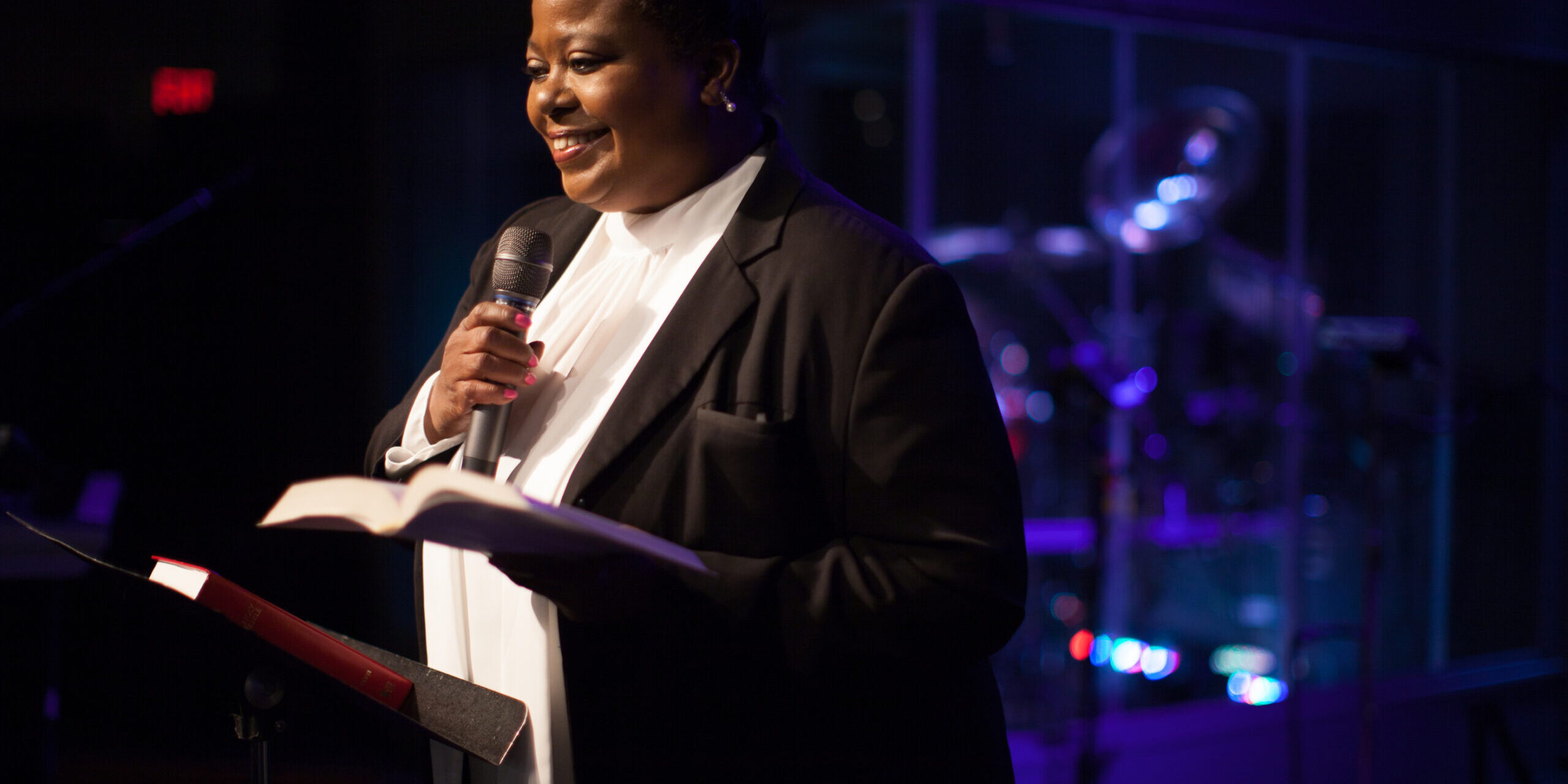While the main research question in the Religious Workforce Project interview deals with how congregations in the Washington, D.C., area harness their financial and human resources to carry out their ministry, some questions address the life experiences of church leaders. Among the 44 religious workers who have been interviewed for the qualitative component of the project, 11 pastors are women who belong to Mainline and Evangelical Protestant traditions and are ethnically diverse: two African Americans, two Latinas, one Taiwanese American, and six white Americans.
Our research team conducted the interviews between early 2020 and late 2022. As we’re starting to dive deeper into the data, we will be writing blog posts about some of our preliminary observations. For instance, we have observed that lay ministry often provides the perfect context for discovering one’s calling as a pastor.
Take for example Janelle (pseudonyms are used for all the pastors described in this post), an African American woman who leads a small church in a D.C. suburb. Sharing her “call story,” she says, “it was probably around my mid-40s that I really went into ministry full time and just really dove in. I walked away from a very stable, lucrative job, six figures, the dream, all of those things, and just started over. … I was actually doing missions already. I was bi-vocational. I was on staff at a fairly large church, and that was a lot to balance, family and then a large church and then missions and then this insane job and all that was going on then.”
Janet, an Asian American woman who leads a church in Washington, DC, also talks about balancing a hectic schedule prior to becoming a pastor: “in my last job as a systems analyst, I had already started serving, very heavily involved in ministry. I had a home group, a prayer group, and I also did some pastoral counseling with my home church.”
Chelsea, a Methodist pastor who previously worked as a nurse while pursuing a master’s degree, admits that her preoccupations were elsewhere:
They didn’t have a children’s choir, so I started a children’s choir. I was also in one of the Sunday school groups. It was all women, and I started to teach that group. I started rotating in and teaching the children’s Sunday school and then I started a Sunday evening class for the children. Then I started another study group. … That really was a big milestone for me because I really, really got deep into the Bible at that point, and I just felt like I wanted more. I wanted to learn more, and more, and more. At the end of the study, there’s a spiritual gifts assessment. Our pastor … said that my gift was a shepherd. So … I kept that in mind, and I felt like there was a call. God wanted me to do something.
Despite doing so much already, her desire for ‘more’ is affirmed when she finally sees that ‘God wanted her to do something.’
Chelsea’s story mirrors the experience of a majority of women in the study: heavy involvement in their congregation’s ministry work, then leadership positions in those ministries, and finally the inklings of a calling to do something more. These women were also juggling an incredible amount of work with their responsibilities as wives and mothers. In the midst of all this, several felt the calling to become pastors, to walk away from money and security, and start over.
The fact that many women are discovering their calling as pastors during lay ministry formation implies that congregations should continue to invest in the formation of lay ministry leaders, particularly women who may have the gifts and the passion necessary to become successful pastors.
— Jacqueline Hojilla







